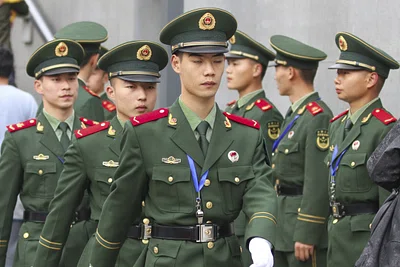At the end of August, China published a curious geographical map. It includes in its territory the Indian state of Arunachal Pradesh (north east of the Indian Union), as well as the mountainous plateau of Aksai Chin.
This provoked an indignant protest from the Delhi government, which Beijing asked not to “over-react”… On August 31, the governments of Malaysia and the Philippines also issued a protest against China’s claim to monopolise, in this official map, almost the entire South China Sea as its EEZ (exclusive economic zone).
India’s reaction provoked Chinese President Xi Jinping’s decision not to travel to India for the G-20 summit on September 9 and 10.
Joe Biden regretted this decision by his Chinese counterpart, with whom he had expected to have a face-to-face exchange, as he had done in November 2022, on the occasion of the G-20 summit in Bali. For the past six months, the Biden administration has been devoting a great deal of effort to trying to halt the slide into hell of Sino-American relations.
There is a contradiction in the strategy of China’s all-powerful emperor. On the one hand, he wants to take the lead in the BRICS’ challenge of the “neo-colonial” yoke that the West claims to want to maintain in Africa and Asia, but on the other he treats India, a major pillar of the BRICS, in a cavalier manner to say the least.
In less than ten days, Xi has succeeded in shattering the undeniable momentum that the BRICS movement had built up at its Johannesburg summit on September 22.
Under Xi, China has gone from an authoritarian regime with collegial leadership to a personal dictatorship prone to totalitarianism in the space of ten years. In China’s regions, municipalities, companies, universities and media, there is no longer the slightest possible scope for challenging the party line. The leader is always right, because he is the leader.
Even bus drivers are obliged to take courses in Xi Jinping thought. Sending criticism of the government to friends on WeChat is dangerous, as the police spy on private conversations.
The Chinese dictator’s international hardening is paralleled by an internal hardening. Statism, centralisation and control have taken on such dimensions that they now inhibit the energy of young Chinese entrepreneurs and executives.
The Communist Party’s insane management of Covid has undermined public confidence. Many talented young people have opted to move abroad. As for those who have already succeeded in China, they dream, without saying so, of just one thing: an Australian passport for themselves and their families.
China’s college-educated elite is still very patriotic. They are proud of their civilisation, the oldest in human history. They share the party’s objective of reclaiming the island of Taiwan. But in everyday life, she is beginning to suffocate under Xi’s rule.
History has taught us that dictators, accountable only to themselves, always end up locked in their obsessions, and then go off the rails. For Mussolini, it was the unnecessary declaration of war on France and England in June 1940. Had he remained neutral, he would have entered the post-war period as a privileged partner of the Anglo-Saxons, who appreciated him.
For Vladimir Putin, the real setback was the failed military coup against Kiev at the end of February 2022. When the guns fall silent on the banks of the Dnieper, Russia will emerge weakened economically, with a much-diminished influence in the Slavic world. When we recall the way Putin publicly rebuked his foreign intelligence chief Narychkin on February 21 2022, we understand that the master of the Kremlin is no longer prepared to listen to the slightest dissenting opinion.
What will Xi do next? A sudden attack on the island of Formosa? A torpedo attack on a Japanese warship in the China Sea? An offensive on the Sino-Indian border? There is a real risk of such an outburst, in the hope of regaining the fervour of Chinese public opinion.
Xi no longer has any authority around him capable of preaching moderation.
Western democracies cannot claim a monopoly on common sense in international relations, as their disastrous military expeditions in Iraq (2003) and Libya (2011) have shown.
But their systems of ‘checks and balances’ (checks and balances between executive, legislative, judicial and media powers) remain the most useful of anti-skid devices.
This article was first published in Le Figaro.





